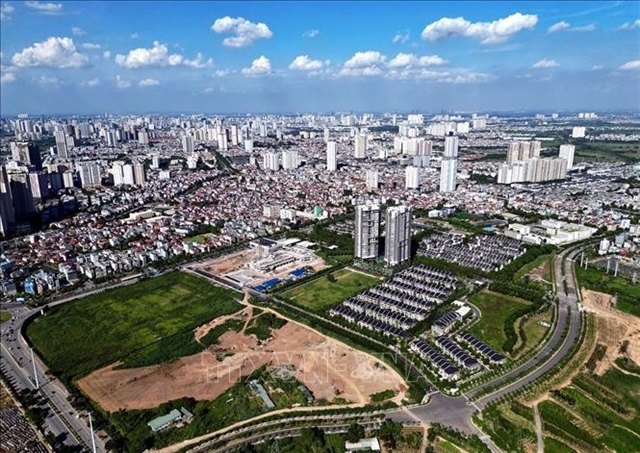German housing finance model adopted in VN
German housing finance model adopted in VN
The Ministry of Construction recently put into place a housing finance model from Germany to assist in helping the nation successfully achieve its national housing strategy.
The housing finance model used in Germany was put in use nearly one hundred years ago and later spread to many countries.
In Germany, parents open a saving account for their children and put a certain sum of money into the accounts each month. After fifteen to twenty years, when their children had grown, they would have a sum of money – possibly equal to one-third to one-half of the value of a house, and with a loan from a bank the next generation could afford to purchase a house.
Deputy Minister Nguyen Tran Nam was quoted by VOV as saying that the model operated efficiently in many countries, such as China, South Korea and Germany, which helped create a long-term and stable capital source for housing development, while encouraging savings.
However, careful research about any barriers effecting this housing finance model in Viet Nam were needed to determine how it would be adopted.
For instance, fluctuations in interest rates were a barrier to using a similar savings model in Viet Nam.
In Germany, savers would be provided with long-term loans for house purchases by banks at the stable interest rate of about 3 per cent.
In Viet Nam, the interest rate would certainly be higher, experts said, pointing out that the Government's support package was currently available at the rate of 6 per cent.
Also, only 1.56 per cent of the VND30 trillion (US$1.42 billion) package had been distributed.
Pham Sy Liem, deputy president of the Viet Nam Federation of Civil Engineering Associations, told the newspaper that inflation was also a concern, because the real value of the savings could be lower after twenty years due to inflation.
Also, the real estate market continued to change in ways that are not predictable, he added.
Liem also pointed out that the savings model had not helped to deal with housing demands of low income earners, because some of them still struggled to make a living and did not have money to set aside for a monthly savings account.
However, Nam said this model aimed to prevent the reliance of people on the Government's support and encourage them to save, especially low-income earners.
vietnamnews

























